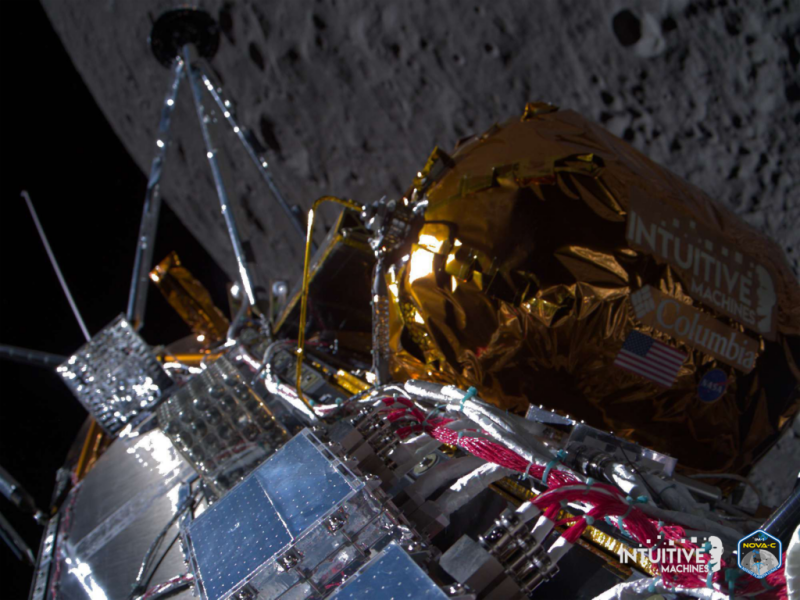
In a monumental achievement, a commercial space flight has achieved a historic landing on the Moon, signaling a new era in private lunar exploration. The unmanned Odysseus lander, developed by the US-based company Intuitive Machines, successfully touched down on the lunar surface near the Malapert A crater, close to the Moon's south pole, after an eight-day journey.
The descent, which kept mission control on edge, faced a moment of suspense as contact with the lander was momentarily lost upon reaching the lunar surface. Approximately 15 minutes after the scheduled landing time, a faint signal was received, and Tim Crain, the mission director and Chief Technology Officer, announced, "Odysseus has found a new home."
This achievement marks the United States' return to lunar exploration after a hiatus of more than 50 years since the conclusion of the Apollo program in 1972. NASA's plans to send humans to the lunar south pole by 2026 rely on collaborations with private companies to reduce costs in services such as transport, navigation, and communications.
NASA Administrator Bill Nelson declared, "The US has returned to the moon. Today for the first time...a commercial company, an American company has launched and led the voyage up there. This shows the power and promise of NASA’s commercial partnerships. What a triumph!"
Intuitive Machines, based in Houston, Texas, received $118 million from NASA to carry six scientific payloads, including instruments to observe space weather from the Moon and a radio beacon for navigation. Additionally, the company carried six commercial packages, featuring mini-sculptures by artist Jeff Koons, a landing recording camera, and a lunar archive.
The solar-powered Odysseus is set to conduct experiments near the lunar south pole and is expected to operate for approximately 14 days in sunlight. This mission is the first of three planned by NASA in collaboration with Intuitive Machines in preparation for the Artemis missions to the lunar south pole. The region is rich in resources such as ice water, crucial for sustaining a permanent human presence on the Moon.
The successful landing was met with elation at Intuitive's mission control, marking a significant achievement for the company that aims to provide a range of lunar services, from communications to navigation and power generation.
Intuitive Machines' shares, which had experienced fluctuations since their 2023 debut, saw a recent surge as the mission milestones were achieved. Despite a brief dip on Thursday, with the stock closing at $8.28, down 11%, the successful landing is a pivotal moment in the company's trajectory.
This lunar exploration comes at a time when NASA envisions the creation of a commercially viable lunar economy as a crucial step toward establishing a permanent human base on the Moon and, eventually, Mars. The significance of private companies engaging in lunar exploration is highlighted by Thomas Zurbuchen, a professor of space science at ETH Zurich, who notes that this landing "changes the whole paradigm of planetary exploration" by making space exploration more cost-effective.
